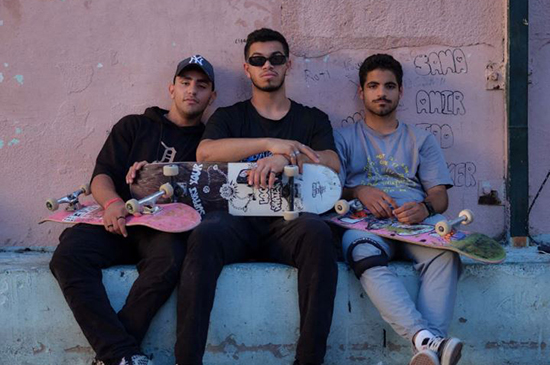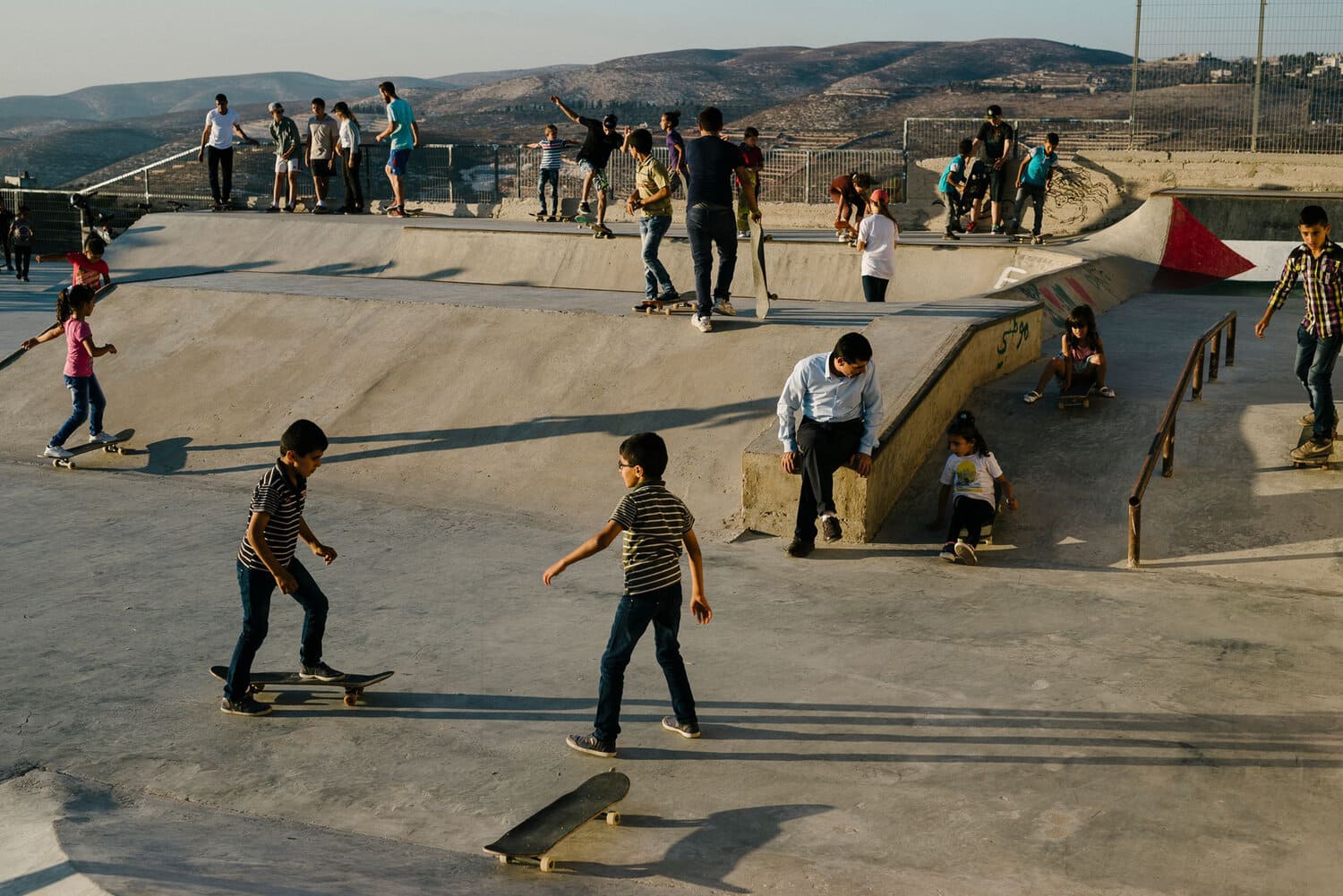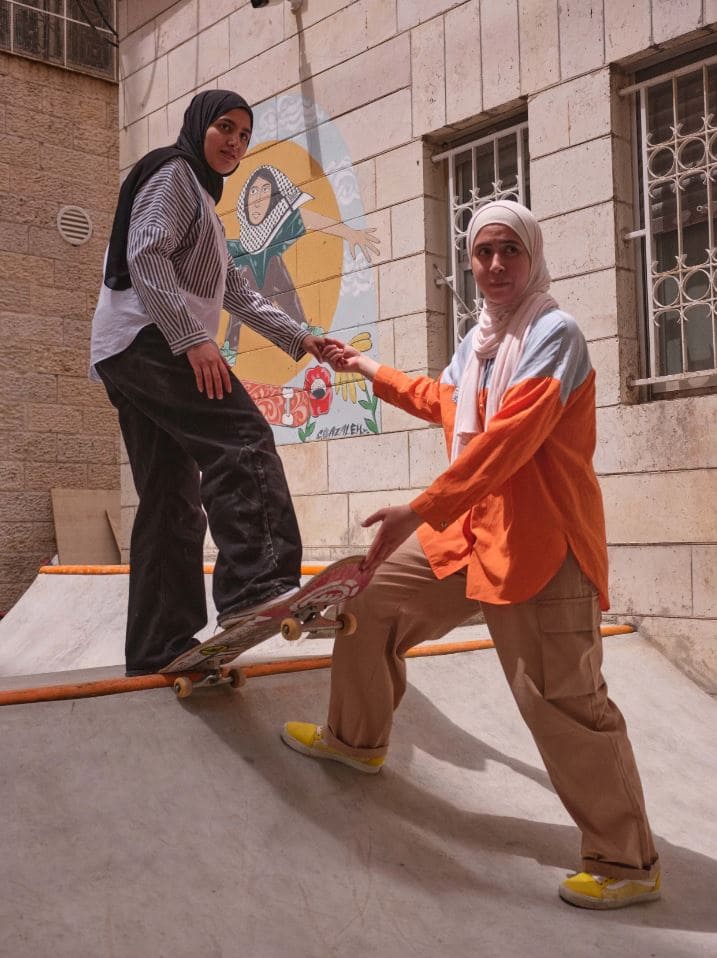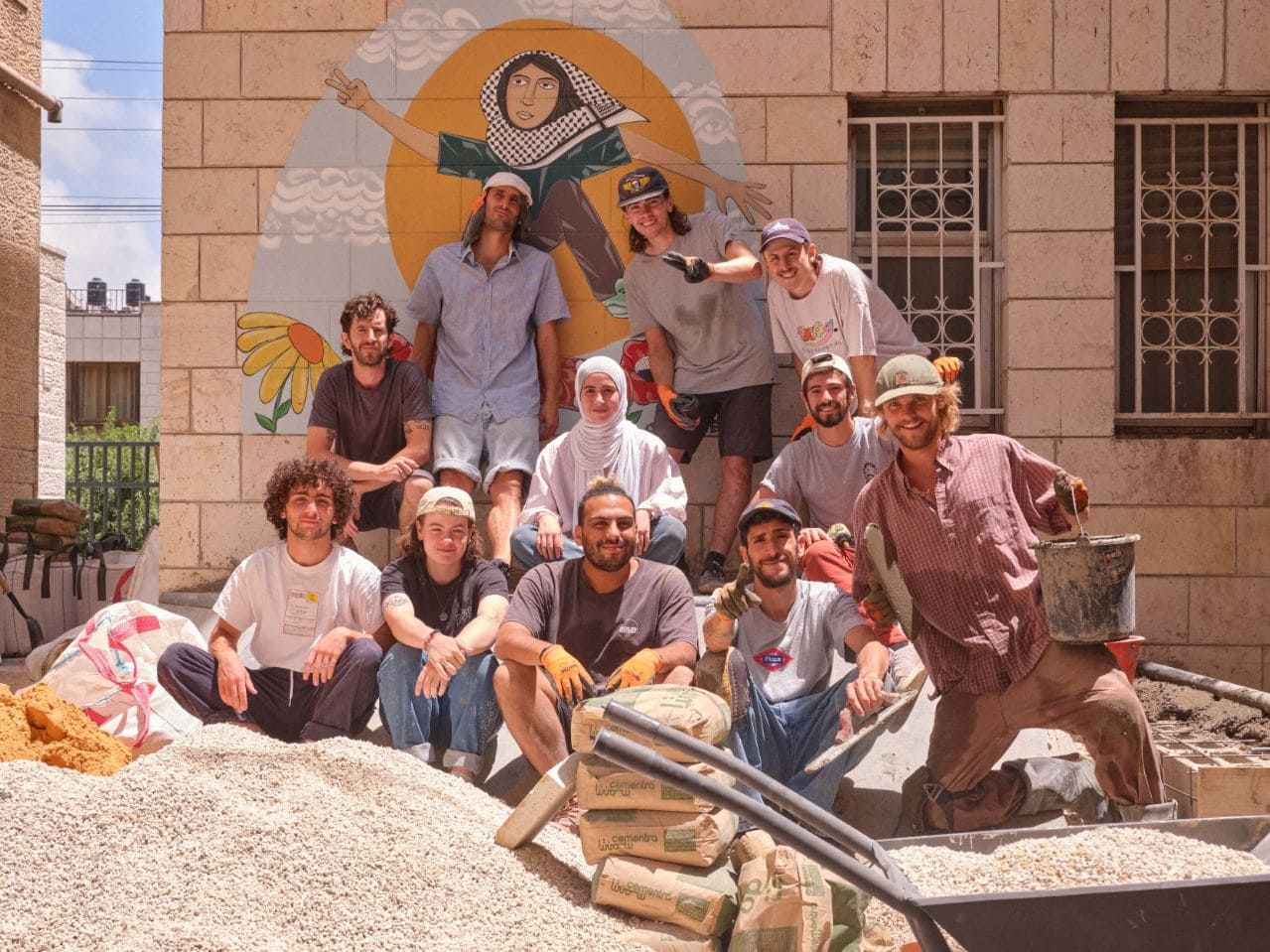
In 2013, Aram Sabbah and his best friend, Adham, embarked on an unconventional journey in the West Bank, introducing skateboarding to a region where it was virtually unknown.
At the time, they were among the first skateboarders in Palestine, drawing curious glances from passersby as they attempted basic tricks in the busy streets of Ramallah. Their inspiration? American television shows like "The Simpsons."
One fateful day, as Aram and Adham visited Ramallah's Sharek Youth Centre with their skateboards, they stumbled upon a surprise. There, they found the first-ever wooden mini-ramp in Ramallah, built by Charlie Davis, a Scottish skateboarder who had recently established the organization SkatePal. Charlie had brought skateboards from the UK and was hosting a summer camp at the youth center with a mission to introduce skateboarding to Palestinian youth.

The encounter with Charlie altered the course of SkatePal and, ultimately, the skateboarding scene in Palestine. Aram and Adham eagerly joined forces with Charlie to teach beginner skate lessons to local youth and construct more skateable obstacles. Despite their limited skating experience, they embraced the responsibility of mentoring young participants.
Over the next decade, SkatePal grew, celebrating its 10th anniversary this year. The skateboarding scene in Palestine expanded steadily, and it became a common sight to see young people skateboarding through the streets of the West Bank. The organization's daily classes, between March and October in various locations, have played a pivotal role in nurturing the skate culture.
While SkatePal has made significant progress in building skate infrastructure, such as three permanent concrete parks and numerous mini ramps, a fully-fledged permanent skatepark in Ramallah remains challenging due to bureaucratic obstacles and customs-related complications. Nevertheless, SkatePal continues to supply fresh boards to local skaters, serving as a lifeline for those who've worn out or snapped their decks while attempting tricks.

In a region marred by the Israeli occupation and ongoing conflict, skateboarding offers a sense of freedom and escape from the harsh realities of daily life. Many Palestinians find solace and empowerment in skateboarding, a way to reclaim their autonomy and express themselves without leaving their homeland.
Skateboarding has also empowered women and girls in Palestine, with a growing number of female skaters joining the scene. SkatePal's emphasis on creating an inclusive and encouraging environment has contributed to the balanced gender split, with female skaters often outnumbering their male counterparts at local skate spots.

The past decade has witnessed the emergence of a unique Palestinian skate culture, with skaters creating their networks and finding their spots. While SkatePal has been instrumental in laying the foundation for the scene, the focus is now shifting towards local skaters taking the lead, making the skate scene self-sustainable.
Despite the challenges, the future of skateboarding in Palestine appears promising. Aram Sabbah envisions a booming scene with more girls and boys skating in the streets and parks. He anticipates the rise of exceptionally talented Palestinian skaters who might gain recognition in the USA and Europe or choose to stay in Palestine and continue pushing the boundaries of the sport. The passion and optimism of individuals like Aram and Charlie pave the way for a thriving skate culture in the West Bank, proving that skateboarding is more than just a sport—a tool for self-expression, freedom, and resilience in the face of adversity.
